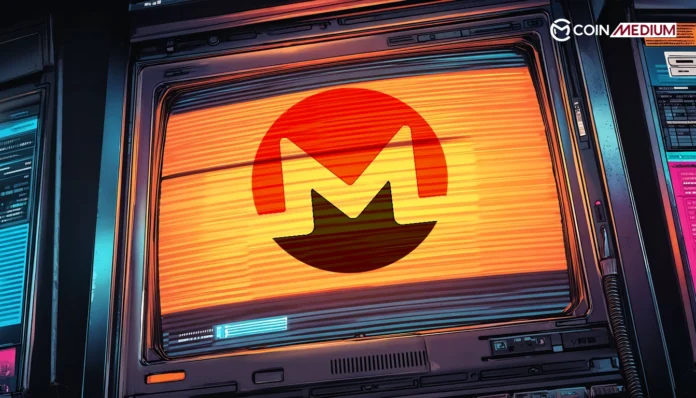Monero (XMR), widely recognized as one of the world’s leading privacy-centric cryptocurrencies, was the target of a significant security breach on Sunday, raising concerns about the integrity of its network and the safety of its users. Surprisingly, rather than triggering a sell-off, the market responded in the opposite direction — Monero’s price surged by 7.4%, reaching about $308.55 by the end of the day.
The unexpected rally caught analysts off guard, as conventional market wisdom would suggest a price drop following such a security incident. The counterintuitive reaction has sparked debate over whether investors viewed the attack as an isolated event or as a testament to Monero’s resilience and long-term value.
The attack came from Qubic, an artificial intelligence mining operation that now controls more than half of Monero’s network. The group used its power to erase 117 confirmed transactions and rewrite the cryptocurrency’s transaction history.
What Happened During the Attack?
The security breach happened on Sunday and lasted for about 43 minutes. Qubic’s computers forced what experts call an “18-block reorganization” – essentially rewriting 18 pages of Monero’s digital ledger. “Think of it like someone going into a bank’s records and erasing the last 18 pages of transactions,” explained crypto security researcher Rucknium. “Those transactions just disappeared from the official record.”
This marks the second time Qubic has attacked Monero’s network. The group launched a smaller six-block reorganization in July, establishing a troubling pattern of network manipulation. Before Qubic’s takeover, Monero had also faced attacks from other mining groups, showing this is an ongoing vulnerability for the privacy-focused cryptocurrency.
Monero, like Bitcoin, relies on “miners”- individuals who run powerful computers to process transactions and secure the network. These miners get rewarded with new coins for their work.
The problem is that Qubic now controls over 51% of all the computing power securing Monero’s network. This gives them the ability to rewrite transaction history whenever they want.
“It’s like one company owning most of the voting machines in an election. They can change the results anytime,” says crypto analyst Vini Barbosa. He announced that he will stop accepting Monero payments until developers fix the security problems. “I don’t consider the Monero network reliable at this point,” he stated.
The Price Puzzle
While Monero faced its worst security crisis to date, investors continued to buy. The cryptocurrency climbed 7.4% on Sunday while most other digital assets fell by 1%. Crypto podcaster Xenu, who first reported the attack, believes Qubic might be buying Monero themselves to “stop the bleeding” from negative publicity. “Why would you attack something and then prop up its price?” Xenu wondered. “Unless you’re trying to make the attack look less damaging.”
Monero developers now face a tough decision that could change the cryptocurrency’s core philosophy. They can implement “DNS checkpoints” – a system where community-controlled servers verify which transactions are legitimate. This would stop future attacks but requires trusting central authorities.
“This goes against everything Monero stands for,” explained blockchain security expert Yu Xian from SlowMist. “Monero was built to be completely decentralized, with no central control.”
The alternative is to leave the network vulnerable to continued attacks.
Failed Safety Systems
Monero had built-in protections that were supposed to prevent these attacks. The network requires 10 confirmations before considering a transaction final, like waiting for 10 stamps of approval.
But Qubic’s attack rewrote 18 blocks, smashing through these safeguards.
Monero’s crisis highlights a growing problem in cryptocurrency: mining centralization. When too much power concentrates in one place, the entire network becomes vulnerable.
“If no one in the Monero community takes these attacks seriously, this threat will always hang over Monero’s head,” Yu Xian warned.
Despite the security concerns, Monero has remained relatively stable since Qubic’s takeover began in July, dropping only 5.85% during the crisis period.
The cryptocurrency’s ability to maintain its value during repeated attacks suggests investors either do not understand the risks or believe the problems will be solved.
As Monero developers debate their next moves, the cryptocurrency faces fundamental questions about its future: Can a “privacy coin” maintain its principles while implementing the security measures needed to survive? Will investors continue supporting a network that one group can manipulate at will?
The answers could determine not just Monero’s fate, but the future of privacy-focused cryptocurrencies as a whole.

